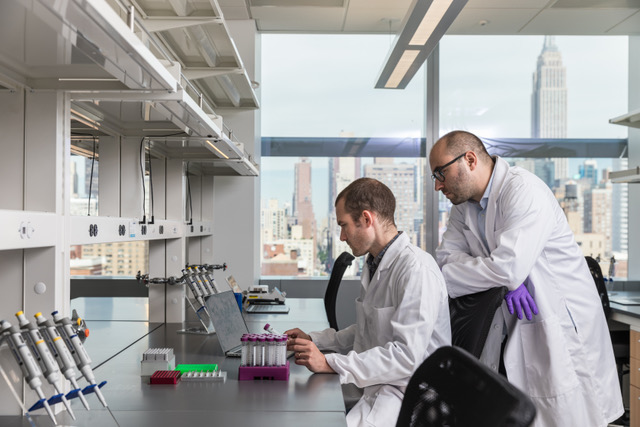
Joseph Pickrell and Tomaz Berisa
Genomics is on the verge of enabling a torrent of data-driven invention, personalization and decision-making. Applications will extend across all forms of life?—?from humans to animals to plants to microbes.
In healthcare, genomics could pervade nearly every aspect of patient care, from prevention strategies to decisions about treatments. It also will provide the basis for a new generation of targeted drugs and therapies that can extend and improve the quality of life for billions of people. In agriculture, genomics will optimize plant and animal productivity while aiding in disease resistance and food safety/traceability. Genomics will also play a role in animal conservation, environmental monitoring, and public health and safety.
All these new opportunities will lead to the creation of new markets, products and services, requiring new tools and platforms.
At Spero Ventures, we invest in technologies that make life worth living. We believe genomics will be foundational to advancing the health and well-being of humanity and the planet. It will inform decision-making and touch lives in ways we cannot yet imagine and may not even see. And so it gives us great pleasure to announce our investment in Gencove.
Gencove, led by co-founders Joe Pickrell and Tomaz Berisa, is developing and commercializing a software platform to support low-pass whole genome sequencing. Low-pass sequencing sequences the whole genome at low depth (0.4–4x) and uses imputation algorithms to fill in missing data. The platform empowers decision-makers across consumer, clinical, research, and agricultural fields with easy and affordable access to rich genomic data and insights.
Whole genome sequencing is the most expensive form of sequencing and the most exhaustive. It maps all three billion base pairs within a (human) genome, providing a massive volume of data for analysis. It serves as the foundation for generating new knowledge of how and why living beings develop. And it is becoming the gold standard for discovering new genetic variants and new relationships between genotypes and phenotypes.
The cost of whole genome sequencing has declined dramatically since the early days of the Human Genome Project, famously outpacing Moore’s law. Reductions originally owed to the introduction of Next Generation Sequencing1, followed by hardware improvements, and more recently software that shifts cost and computational burden to later stage analysis2. Despite these reductions, the $500–1000 price point (and even the widely-touted yet still aspirational $100 price point) for whole genome sequencing remains out of reach for a wide range of applications. Without an affordable alternative, these applications will either fail to be commercialized, remain niche and unaffordable for most, or rely on the limited subset of data offered by less expensive DNA microarrays3 (which typically cover 0.03% of the genome).
Low-pass sequencing (LPS) is this affordable, data rich alternative. And Gencove is making LPS available to customers at price points beginning at $50 per sequence?—?on par with microarrays. In addition to offering comprehensive coverage, LPS outperforms microarrays in detecting both common and rare genetic variation. LPS does not require a priori knowledge of the genome making it suitable for new variant discovery and free from the bias inherent in microarrays (which are widely seen as unsuitable for non-Caucasian/European populations not well covered by reference databases).
Gencove’s customers are integrating low-pass sequence data into personalized consumer product offerings, new research modalities, novel diagnostics, plant/animal breeding programs, and more.
We are excited partner with Gencove in its mission to bring affordable genomic insights to customers and industries that have never before been able to affordably integrate them at scale?—?potentially unlocking discoveries and innovations we have yet to imagine.

